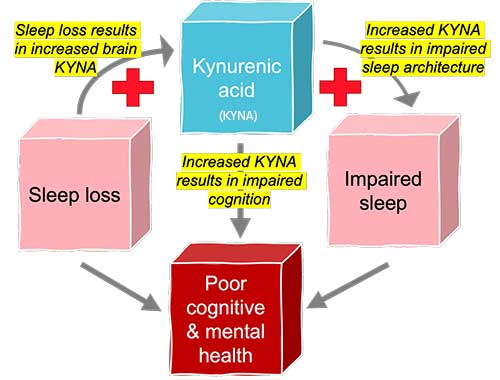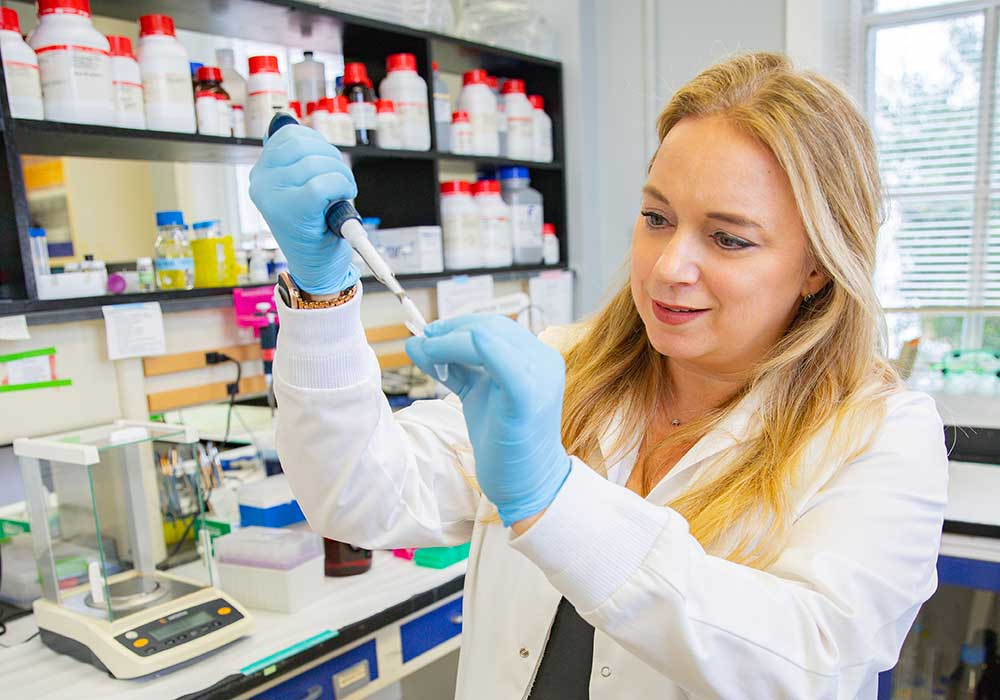Neuroscience professor Ana Pocivavsek’s roots are in Upstate South Carolina where she immigrated with her family and completed high school. Twenty years after leaving the state to obtain her undergraduate and graduate degrees and then embark on post-doctoral work in Maryland, she returned home to the University of South Carolina in 2018.
Since she joined USC School of Medicine Columbia's Department of Pharmacology, Physiology and Neuroscience, she has secured major national funding, published her work in prestigious journals and built a national and international reputation for her research on sleep disruptions. In 2022, she was named a Breakthrough Star, an award presented each year by the Office of the Vice President for Research to recognize early career faculty for their research and scholarly excellence.
This summer she earned a new four-year grant to study the impact of maternal sleep and offspring health. The National Institutes of Health grant will build on her research on the role of kynurenic acid in sleep and cognition.
“I study the impact of sleep across the lifespan during windows that are critical to brain development,” says Pocivavsek. “I'm really interested in how disrupted sleep during pregnancy can have an impact on early brain development.”
Poor sleep is a common problem and may be especially detrimental during prenatal development, childhood and adolescence, she says. Through funding from the new and previous grants, Pocivavsek explores how kynurenic acid, a metabolite of tryptophan, is involved in modulating sleep and how it changes when animals are subjected to sleep loss.
Her research through pre-clinical studies aims to understand how poor sleep impacts behavioral outcomes across the lifespan. Her findings have brought groundbreaking insight to the cause and treatment of cognitive impairment and mental illness and have encouraged the development of potential new treatments for individuals whose poor sleep quality impacts their mental health.

“We have access to drugs that can be used preclinically in animals to lower the levels of kynurenic acid by targeting an enzyme that makes it,” says Pocivavsek, who earned a bachelor’s degree in psychology from Duke University and a Ph.D. in neuroscience from Georgetown University. “What we've shown in adult animals is that when you improve sleep, you can improve impairments in cognition.”
Last year, Pocivavsek and her team published a study that shows the use of the drugs, known as KAT II inhibitors, helped improve sleep quality and duration in rodents. With new funding, they hope to determine they are also safe and effective during the prenatal period, which could lead to clinical trials in humans.
Pocivavsek and her team collaborate with partners across campus, including the Carolina Autism and Neurodevelopment Research Center and the Molinaroli College of Engineering and Computing.
“Dr. Pocivavsek's research on establishing the molecular basis of sleep disorders is pivotal in advancing our understanding of the intricate relationship between sleep and cognitive dysfunction,” says Homayoun Valafar professor and chairman, Computer Science and Engineering and director of the AI Institute.
A collaborator of Pocivavsek, Valafar notes her multidisciplinary approach, which integrates cutting-edge expertise from neuroscience, artificial intelligence and computer science, is opening promising avenues for unraveling complex neural mechanisms and developing innovative solutions for sleep-related cognitive impairments.
Christian O'Reilly, also a professor in Engineering and Computing, collaborated with Pocivavsek on a 2024 research paper. O’Reilly helped automate the analysis of sleep spindles, a transient pattern of brain waves that occurs during sleep. He expects to support research in the new grant with analysis of sleep spindles and biosignals.
“I think the main axis of her research is crucial to elucidating how poor sleep affects our health in so many ways,” O’Reilly says. “The results of Ana’s research through newly awarded R01 could have significant translational applications. Since kynurenine can easily be modified (for example, through diet and sleep habits), clarifying its role in sleep-related health impact could open significant therapeutical opportunities.”
In addition to faculty collaborators, Pocivavsek mentors both undergraduate and graduate students in her lab.
“I love seeing them develop their passion for the work, because I know they're going to take what they’ve learned and make an impact,” she says. “One of my very first students went to the same high school as me in Spartanburg. I'm still in touch with her. Those connections are important to me because I grew up in this state, and I want to make an impact on the community that raised me.
